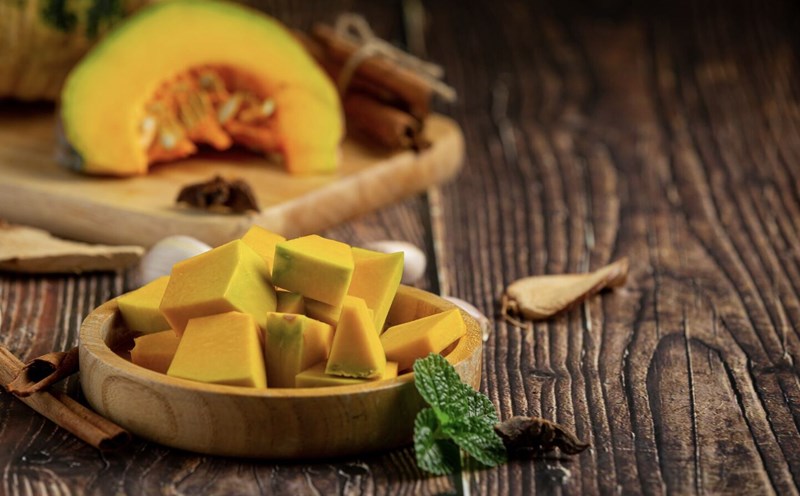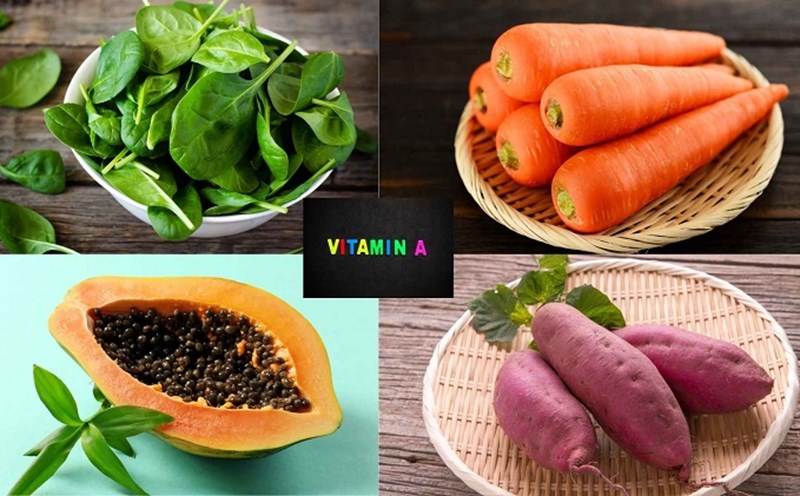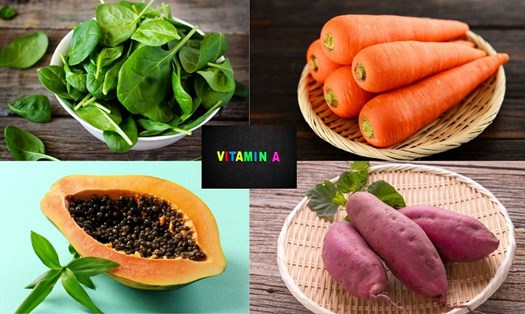Beef liver, a rich source of vitamin A from food
According to nutritionist Aviv Joshua (MS, RDN, New York University, USA), vitamin A plays an important role in maintaining healthy skin, eyes and the immune system. The body cannot make vitamin A on its own, so supplementation through food is necessary, he said.
Among foods, beef liver tops the list for vitamin A content. Just 85 grams of ripe beef liver contains up to 6,582 micrograms of active retinol (RAE), nearly seven times the daily requirement of vitamin A of adults (900 mcg for men, 700 mcg for women). However, experts recommend not eating too often because the liver contains a lot of saturated fat, which can be harmful if consumed too much.
Another source of vitamin A is liver sausage (liverwurst), a type of sausage made from liver, which provides about 1,500 mcg of RAE per slice.
Sweet potatoes, spinach and pumpkin, a group of plants rich in carotenoids
Not only animal foods, many vegetables are also rich in carotenoids, a precursor to vitamin A. The body can convert carotenoids into vitamin A when necessary, making it safer because it does not cause high doses of poisoning.
Peeled baked sweet potatoes contain about 1,730 mcg of RAE, enough to exceed the daily recommendation but still healthy.
Binh rau (bunch sticky rice) boiled in half a cup provides 573 mcg of RAE, which is very useful for vision and skin.
Pumpkin is also a rich source, with 902 mcges of RAE per cup of pumpkin soup or a slice of pumpkin cake providing about 488 mcges of RAE, both delicious and nutritious.
Experts recommend diversifying sources of vitamin A in meals: combining liver, eggs, vitamin A supplemented milk with vegetables such as carrots, pumpkin, dark green vegetables, mangoes or red bell peppers.
Benefits and notes when supplementing vitamin A
Vitamin A helps improve vision in low light conditions, protect skin and bones, support reproductive health and strengthen the immune system. However, excess vitamin A (especially from animal retinol) can cause liver poisoning, headaches, or digestive disorders.
According to the American Academy of Pediatrics, vitamin A supplementation should only be done when prescribed by a medical doctor, because vitamin A deficiency is rare in developed countries.











